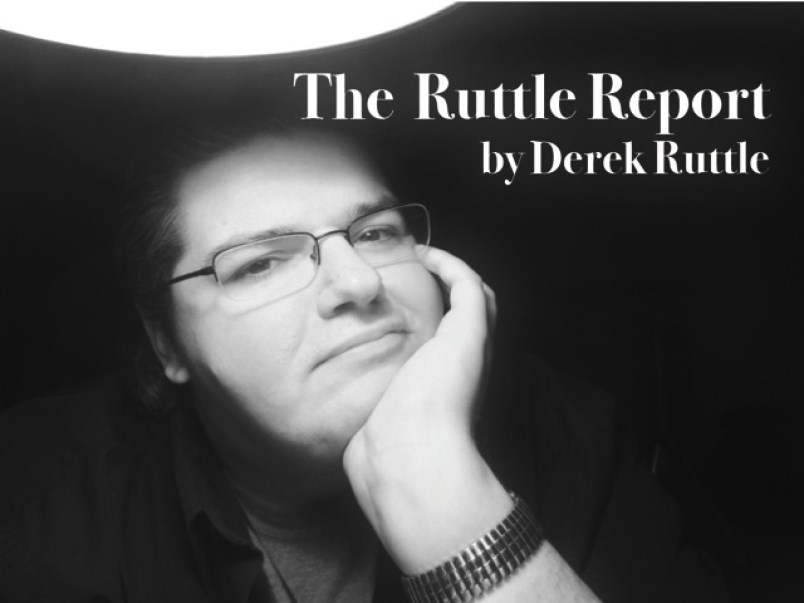Elections can be very interesting, no matter what's being decided.
It doesn't necessarily matter if it's just a municipality, or the province, or the entire country. All elections bring a particular level of interest and end up spawning their own set of unique stories and headline-grabbing conclusions.
But seeing as how Saskatchewan just wrapped another election, let's look at the picture as things have become a little bit clearer, shall we?
First off, let's go ahead and get the obvious out of the way right now.
In 2020, the provincial election was called after 37 minutes, with a Sask Party majority government being called by 8:37 that night.
In 2024, the provincial election was called after 3 hours and 45 minutes, with a Sask Party majority government being called by 11:45 that night.
So then, what exactly was the reason for this glaringly obvious difference in time?
I mean, sure, it's essentially the same ending we've seen in Saskatchewan since 2007, but no one can deny that there was a vastly different story told on that Monday night here in the Land of Living Skies, and everyone who was paying attention took notice, especially NDP leader Carla Beck and Sask Party leader Scott Moe.
What everyone ended up seeing with the final results was a hard line being drawn in the sand between the rural and urban parts of the province. The Sask Party dominated and gobbled up the rural parts of the province to the surprise of no one, while the NDP dominated in Saskatchewan's two biggest urban areas in the form of our province's two biggest cities, Regina and Saskatoon.
Not only that, but Team Orange actually wrestled a number of ridings away from former Sask Party stronghold names, including longtime MLA Christine Tell, who was not re-elected in the Regina Wascana Plains constituency, losing to the NDP’s Brent Blakley. Tell, who was the Minister of Environment at the time the election season was called, had held the seat since the Sask Party first took government in 2007 and was re-elected in 2011, 2016, and 2020.
In addition, Sask Party candidate Gene Makowsky lost his seat in Regina University, having represented the party since 2011. The former Saskatchewan Roughrider lineman was defeated by the NDP candidate, Sally Houser.
Then-Minister of Parks, Culture and Sport and Status of Women Laura Ross was also ousted from her seat, this one in Regina Rochdale, where Ross was defeated by the NDP's Joan Pratchler.
When we move over to the city of Saskatoon, we saw Paul Merriman, the then-minister of corrections, policing and public safety unseated by a margin of less than 300 votes in Saskatoon-Silverspring, losing to the NDP's Hugh Gordon, a small business owner and retired member of the RCMP.
In Saskatoon-Stonebridge, the Sask Party's Bronwyn Eyre was also defeated, losing to NDP candidate Darcy Warrington, and in Saskatoon Churchill-Wildwood, the Sask Party's Lisa Lambert was ousted after serving two terms, with the NDP's Keith Jorgenson now in the role.
A number of constituencies decided to change their colors from green to orange, and what we saw was the divide between rural and urban become even clearer.
In the end, what happened was a stalemate of sorts: urban areas are going to vote NDP because urban folks like what that party promises, and rural areas are going to vote Sask Party because rural folks like what that party promises.
So then, what happened? Where exactly did both parties go wrong this time?
As someone whose job it is to watch these elections unfold and interview a large number of candidates on their views, policies, agendas, and hopes and dreams, I can tell you that over the course of my 17 years, I've seen where a number of politicians have done good and a number of them have done bad.
As far as the Saskatchewan Party and the NDP are concerned, nothing about what either group represents or promotes is altogether good or bad.
Rather, it's their people skills as far as both of their election campaigns are concerned. The Sask Party relies on rural support, which is why they routinely get swept back into office in those areas, but this time around, they relied on it too often when it was made painfully obvious on Election Night by those switching city numbers that they're losing support in key areas.
Meanwhile, the NDP seems to prefer to keep themselves situated in the larger urban areas because they seem to have given up on ever gaining any rural footing, so it appears like they don't even try. Once again, this reliance on only one facet of the Saskatchewan population will lead one into a downfall, and on Election Night, it did for the NDP.
One party still won and one party still lost on that late Monday night, sure, but the message was clear: the Saskatchewan Party and Premier Scott Moe both have some serious work ahead of them to gain back the trust of a number of urban voters, and the NDP has to sit down and look very hard at their party's direction and strategy if they ever hope to gain any confidence from rural voters.
2028 just may turn out to be the deciding factor on what direction our great province may be headed. Of course, a thousand things can happen between now and then.
Still, it was an interesting 2024 Election Night in several ways, that's for sure.
For this week, that's been the Ruttle Report.




